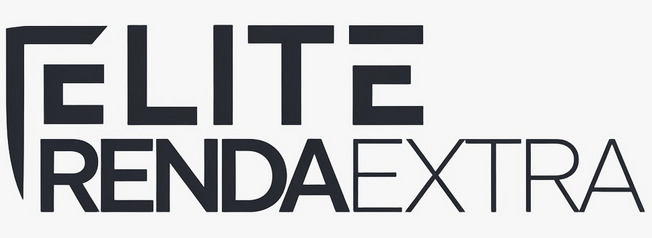Navigating the world of personal finance often involves exploring various borrowing options. When unexpected expenses arise or a significant purchase is on the horizon, a personal loan can sometimes provide the necessary funds. Understanding the landscape of available loans, including those potentially offered by established institutions like American Bank, is a helpful first step.
This overview aims to shed light on the general aspects of personal loans, focusing on the kinds of options and requirements one might encounter, particularly when considering a provider like American Bank. Having a clear picture of what’s involved can empower you to make informed decisions about your financial needs.
What Exactly is a Personal Loan?
A personal loan is typically an unsecured loan, meaning it doesn’t usually require collateral like your house or car. Borrowers receive a lump sum of money upfront and agree to repay it, plus interest and any applicable fees, in fixed monthly installments over a predetermined period. These loans are versatile and can be used for various purposes.
Common uses include consolidating higher-interest debt (like credit cards), financing home improvements, covering medical bills, paying for educational expenses, or managing other significant life events. The flexibility in usage is one of the key characteristics that make personal loans a consideration for many individuals in the United States.
Exploring Potential American Bank Personal Loan Options
While specific product details can vary and change, banks like American Bank often provide a range of personal loan products tailored to different needs. Understanding these potential options gives you a framework for what to look for.
Possible Types of Loans
Financial institutions frequently offer different structures for personal loans. You might find options such as:
- Unsecured Personal Loans: These are the most common type, granted based primarily on your creditworthiness without needing specific collateral.
- Secured Personal Loans: Less common for general personal loans, these might require an asset (like a savings account or certificate of deposit) as security, potentially offering different terms or rates.
- Debt Consolidation Loans: Specifically designed to combine multiple existing debts into a single new loan, often with the goal of simplifying payments or potentially securing a lower overall interest rate.
Investigating the specific types of personal loans American Bank might currently offer is essential for finding a fit for your situation.
Loan Amounts and Repayment Terms
The amount you can borrow and the time you have to repay it are critical factors. Banks typically offer a range of loan amounts, potentially from a few thousand dollars up to $50,000 or more, depending on the lender and borrower qualifications. Repayment terms often range from 24 to 72 months (2 to 6 years), though shorter or longer terms might be available. A longer term usually means lower monthly payments but potentially more interest paid overall.
Interest Rates and Associated Fees
The interest rate significantly impacts the total cost of the loan. Rates on personal loans can be fixed (staying the same for the life of the loan) or variable (fluctuating with market rates). Factors influencing your rate include your credit score, credit history, income, loan amount, and loan term. Generally, stronger credit profiles tend to qualify for lower rates. Additionally, be aware of potential fees, such as origination fees (charged for processing the loan, sometimes deducted from the loan amount) or late payment fees.
Understanding the Requirements for Qualification
Meeting the lender’s criteria is necessary to be approved for a personal loan. While requirements differ between institutions, some common factors are typically assessed.
General Eligibility Criteria
Most lenders in the United States, likely including American Bank, will have baseline requirements such as:
- Minimum age (usually 18 or 21).
- U.S. citizenship or permanent residency status.
- A verifiable source of income (employment, self-employment, benefits, etc.).
- A valid Social Security number.
- A physical address in a state where the bank operates.
Credit Score Considerations
Your credit score is a crucial factor in personal loan applications. It reflects your history of managing debt. While some lenders cater to a wider range of scores, a good to excellent credit score (typically considered 670 or higher) generally improves your chances of approval and helps secure more favorable interest rates. Lenders use your score and credit report to gauge the risk associated with lending to you.
Necessary Documentation
When you apply, you’ll likely need to provide documentation to verify your identity, income, and address. Standard documents often include:
- Proof of Identity: Government-issued photo ID (driver’s license, passport).
- Proof of Income: Pay stubs, W-2 forms, tax returns (especially if self-employed), bank statements.
- Proof of Address: Utility bill, lease agreement, bank statement.
- Details of existing debts (for debt consolidation).
Having these documents ready can streamline the application process.
The Typical Personal Loan Application Journey
Knowing what to expect when applying for a personal loan can make the process feel less daunting.
1. Gathering Information and Preparation
Before applying anywhere, it’s wise to check your credit report, determine how much you need to borrow, and assess your ability to handle monthly payments. Researching potential options, like those at American Bank, helps you understand typical terms and rates.
2. Submitting the Application
Most banks offer online applications, which are often convenient and quick. Some may also allow applications in person at a branch or over the phone. You’ll provide personal, financial, and employment details, along with the required documentation.
3. Lender Review and Decision
The bank will review your application, credit report, and documents. They assess your creditworthiness and ability to repay the loan. This process can take anywhere from a few minutes (for online pre-qualification) to several business days for a final decision.
4. Receiving the Funds
If approved, you’ll receive the loan agreement outlining the terms, rate, and fees. After you sign the agreement, the funds are typically disbursed directly into your bank account, often within a few business days.
Considering an Established Institution like American Bank
Working with a well-known bank can offer certain perceived benefits. Established institutions often have physical branches for in-person support, potentially integrated online banking platforms, and may offer relationship benefits if you’re already a customer. However, it’s always important to compare specific loan offers regardless of the lender’s size or reputation.
Important Considerations Before Applying
A personal loan is a significant financial commitment. Thoughtful consideration is crucial.
Assess Your Actual Need
Carefully evaluate why you need the funds and whether a loan is the most appropriate solution. Could you save up for the expense instead? Is the purchase or expense truly necessary?
Compare Different Options
Even if you’re considering American Bank, look at offers from other banks, credit unions, and reputable online lenders. Comparing rates, fees, and terms can help you find the most suitable and cost-effective loan for your circumstances.
Understand the Total Cost
Look beyond the monthly payment. Calculate the total amount you’ll repay over the life of the loan, including interest and fees. Ensure this fits comfortably within your budget without straining your finances.
Read All Documentation Carefully
Before accepting any loan offer, thoroughly read the loan agreement. Understand all terms, conditions, fees, and penalties for late payments or prepayment.
Exploring personal loan options and requirements, whether through American Bank or other institutions, requires careful research and self-assessment. Understanding the types of loans available, the qualification criteria, and the application process allows you to approach borrowing responsibly.
Ultimately, being well-informed about personal loans empowers you to make financial choices that align with your needs and long-term well-being.



